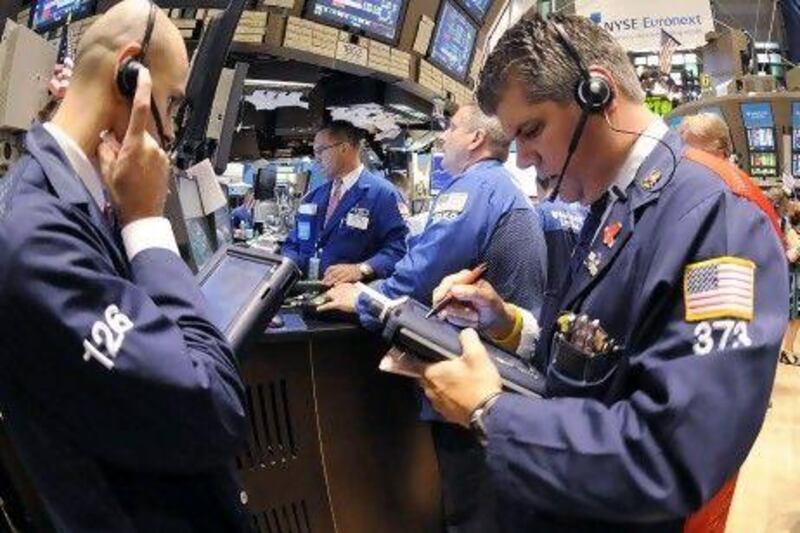US government default on its debts or a credit rating downgrade risks igniting inflationary pressures in the UAE through the dirham's fixed exchange rate to a weaker dollar, say analysts.
The US has less than a week to reach a deal to raise its US$14.3 trillion (Dh52.52tn) debt limit or face not being able to pay its bills.
Concerns about the stalemate among politicians have already caused the dollar to slump to near 12-month lows. Any further negative twists are expected to weigh further on the currency.
"A weak dollar would certainly pose currency challenges for the UAE," said Paul Robson, a currency strategist at Royal Bank of Scotland. "Dollar weakness against other currencies can lead to higher costs of importing goods."
A rise in global commodity prices has already pushed up the cost of imported food and other goods to the Emirates.
But overall inflation has remained more muted because of a fall in housing rental prices. Annual inflation in the UAE rose by 1.7 per cent last month, according to official data.
The dollar recovered from record lows against the Swiss franc and three-week lows against the euro yesterday. But analysts expect the rally to be curtailed as uncertainty persists about the debt agreement outlook.
Standard & Poor's and Moody's Investors Service have both warned of a downgrade of the US government's top-notch rating as the debt standoff drags on.
"If markets get nervous over the US debt situation, there would be a more direct effect to local markets because potential weakness in the dollar would immediately carry through to the dirham," Nick Stadtmiller, a fixed-income analyst at Emirates NBD, said earlier this week.
The dollar peg means regional policymakers have limited room to exercise independent monetary policy tools to control inflation in asset prices. Their action has to closely follow the responses of the US Federal Reserve, which is maintaining low interest rates.
The UAE has maintained the fixed exchange rate since 1997.





